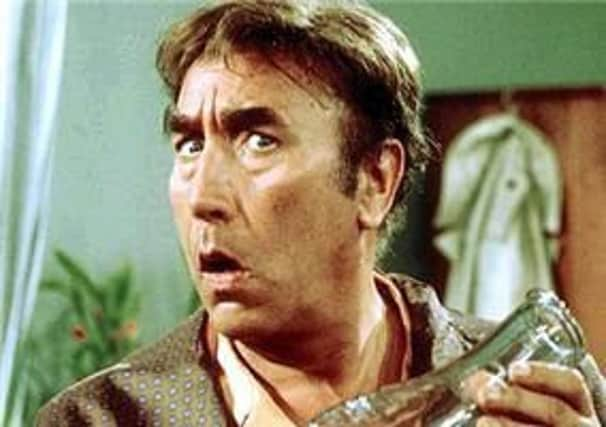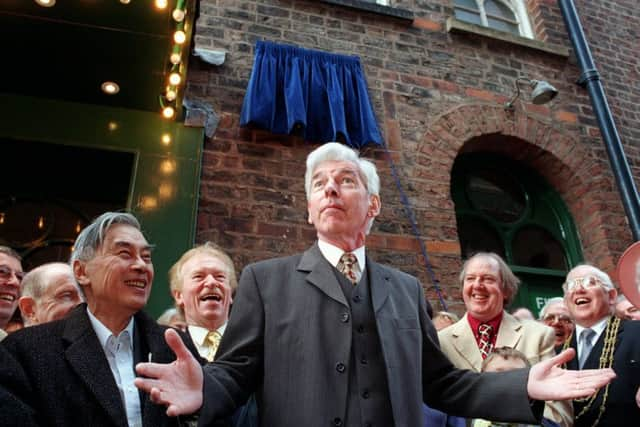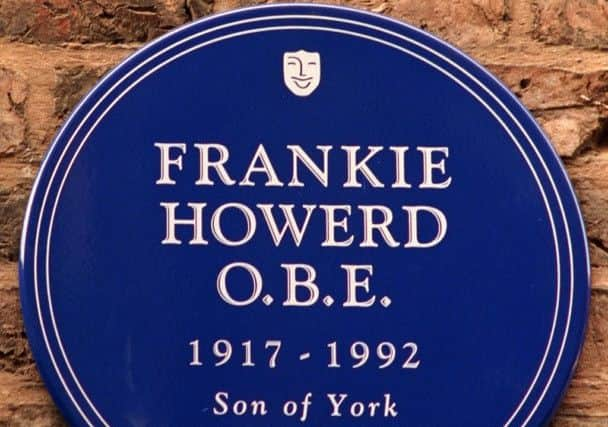Oo-er! Comic Frankie Howerd, 100 today


It was an inauspicious debut for a comedian who would tickle the nation’s funnybone for the better part of 60 years.
Named after his father, Francis Sr, Frankie beat a path to London almost before he could walk. All that’s left of his early life in Yorkshire is a blue plaque on the wall of his old family home, 53 Hartoft Street in York.
Advertisement
Hide AdAdvertisement
Hide AdBest remembered, perhaps, for Up Pompeii and a succession of variety specials, Howerd’s professional career stretched right back to the end of World War II. Whenever it was on the wane, he reinvented himself for a new audience in what one of his writers, Leeds-born Barry Cryer, described as “a series of comebacks”.


He was already a star on BBC radio’s Variety Bandbox when, around 1948, an ambitious would-be scriptwriter called Eric Sykes began sending him material. Howerd made his screen debut in 1954, opposite the young Petula Clark and the future Emmerdale stalwart Toke Townley, in Val Guest’s comedy The Runaway Bus.
But as the fifties wore on, he found himself out of fashion, and a nervous breakdown helped fuel his decline.
It was a new wave of comedians who came to his rescue. Peter Cook, at the vanguard of the satire boom of the early Sixties, booked him to appear at his Establishment Club in London’s Soho - an engagement which led directly to a celebrated appearance on the most talk-about TV show of the day, the BBC’s That Was The Week That Was.
Advertisement
Hide AdAdvertisement
Hide AdIf it appeared to be off-the-cuff - and it did - it was down largely to Howerd’s gift for mock spontaneity. In fact, every word, and almost every “oo-er”, “no, don’t” and “titter ye not” was put down on paper, by Cryer, Ray Galton, Alan Simpson and others.


His renewed fame took him to the West End, in A Funny Thing Happened on the Way to the Forum - an early incarnation of Up Pompeii - and from 1966 he appeared in two-handed TV specials with Bruce Forsyth, the later ones produced at the new Yorkshire TV studios in Leeds.
Howerd was a regular in the city, appearing in guest shots on shows like 3-2-1 well into the Eighties. Unlike many of his contemporaries, he survived the transition to alternative comedy, reinventing himself yet again for college audiences. His last TV special was recorded at one such gig, at the Oxford Union.
On stage, the mask never slipped - it was glued in place as firmly as the ill-fitting toupee. But privately, Howerd was a complex man, tortured by his homosexuality and recurring bouts of stage fright and the stammer that had afflicted him since childhood.
He died in 1992, aged 75. His home, Wavering Down House in the village of Cross, near Cheddar in Somerset, is now a tourist attraction.